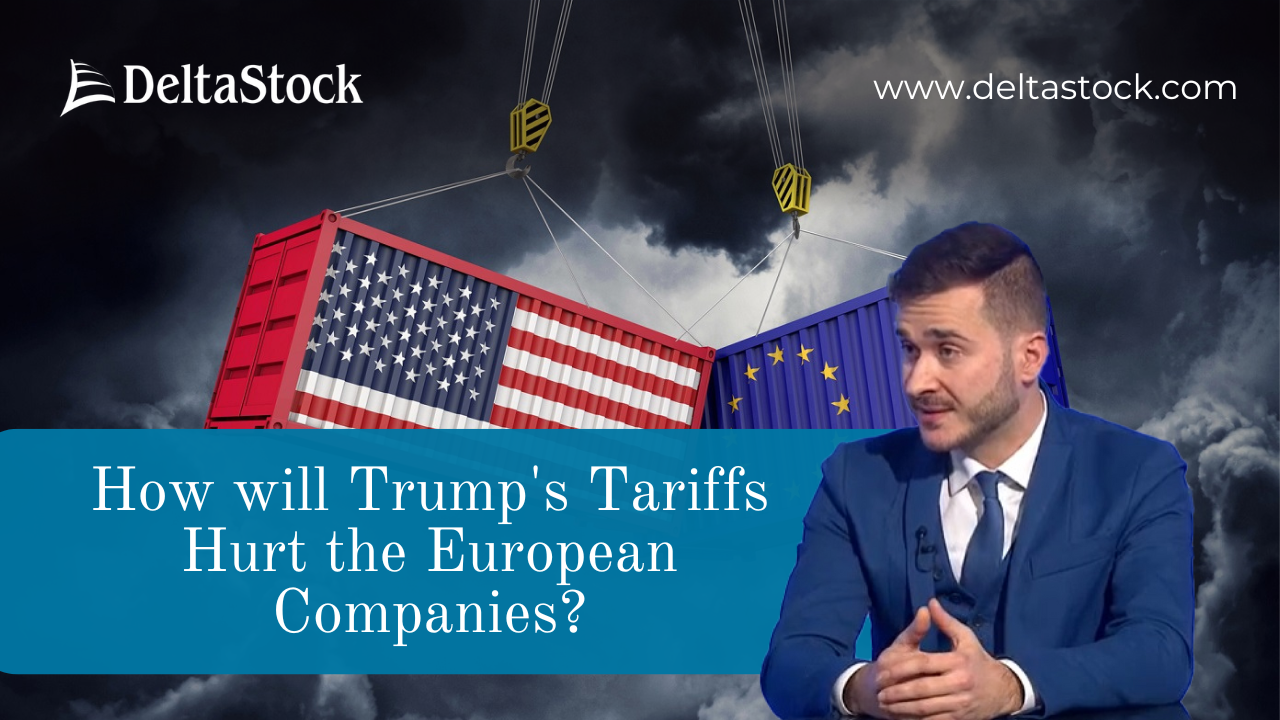
The start of Donald Trump’s second term has been marked by an aggressive trade policy, with new tariff threats and implementation already shaking global markets. The administration has announced tariffs of 25% on goods from Canada and Mexico and 10% on energy imports. Although these duties have been postponed until early next month, there is increasing concern that Trump will now turn his attention to Europe.
Last Thursday, the U.S. administration introduced the so-called “Fair and Reciprocal” trade plan, aimed at addressing perceived unfair trade practices by Europe, Japan, and South Korea. The most vulnerable European sectors include automotive, pharmaceuticals, and alcoholic beverages, as 12 of the 20 most-exported European products to the U.S. belong to these categories.
How vulnerable is the European pharmaceutical sector?
European pharmaceutical companies have long been reliant on the U.S. market, making them highly susceptible to new tariffs. A prime example is Denmark’s Novo Nordisk, a leading producer of diabetes medication.
In 2024, the U.S. accounted for 58% of Novo Nordisk’s revenue. The potential imposition of tariffs could significantly cut into its profitability, a concern reflected in the company’s share price, which has plummeted by 35% since Trump’s re-election. This is particularly notable considering Novo Nordisk briefly became Europe’s largest company in 2023, reaching a market capitalisation of $600 billion.
Will European carmakers suffer in a Trade War?
European automakers are already facing numerous challenges, including overreliance on the Chinese market, innovation shortfalls, and declining competitiveness. New U.S. tariffs could exacerbate these struggles, with potential import duties on European vehicles expected to be at least 10%, matching the EU’s current tariffs on U.S. cars.
Such measures would likely lead to declining sales due to higher consumer prices and reduced investment confidence. A key moment in this trade dispute could come in early April when the European Union will need to decide whether to counteract or adopt a more proactive strategy—such as reducing tariffs on U.S. cars to 2.5%—to defuse tensions.
The future of car manufacturing in Mexico and Canada
Approximately 90% of car exports from Mexico and Canada are destined for the U.S., making these countries extremely vulnerable to prolonged tariff battles. While there is a high probability that the U.S. may impose aggressive tariffs only to withdraw them later, automakers are more likely to adopt defensive strategies rather than abandon production in these countries altogether.
Given that a U.S. presidential term lasts only four years, many car manufacturers may choose to absorb short-term costs, passing on expenses to consumers instead of making drastic shifts in production.
Volkswagen’s Mexican operations at risk
Volkswagen’s Puebla plant in Mexico, the company’s largest facility in North America, produced nearly 350,000 vehicles in 2023, including the Jetta, Tiguan, and Taos—all primarily for export to the U.S. Additionally, Volkswagen is investing up to CAD 7 billion ($4.9 billion) in a new battery gigafactory in Ontario, Canada, with production expected to commence by 2027—coinciding with the potential end of Trump’s term.
Business in the age of protectionism: how can European companies adapt?
European companies facing tariff threats have several strategic options:
- Shift production to the U.S. – While this would mitigate tariffs, it is not an immediate solution since setting up new plants takes years.
- Acquire or partner with U.S. firms – This is a more practical short-term strategy. Volkswagen, for example, recently announced a EUR 5 billion investment in a partnership with U.S. electric vehicle manufacturer Rivian, primarily for software development.
Interestingly, this investment came just as Ford and General Motors announced cutbacks in electric vehicle investments due to declining demand. This underscores the importance of strategic decision-making in a volatile trade environment.
The hidden costs
Beyond external trade barriers, European companies also struggle with internal regulatory hurdles. According to the International Monetary Fund (IMF), internal EU barriers equate to an estimated 45% tariff on manufacturing and an astonishing 110% on services. This suggests that Europe’s economic challenges are not solely the result of U.S. protectionist policies but also internal inefficiencies that hinder competitiveness.
The case of Diageo
Diageo, one of the world’s largest alcoholic beverage producers, is also feeling the effects of trade uncertainty. The company, best known for brands like Johnnie Walker whisky, recently withdrew its 2025 sales growth forecasts (previously projected at 5-7%) due to fears of impending tariffs.
Investor confidence in the sector has declined, as reflected in Diageo’s stock, which has dropped 14% in the past month. This suggests that uncertainty surrounding trade policies will continue to drive market volatility throughout the year.
Will S&P 500 earnings decline?
Goldman Sachs estimates that the proposed tariffs could lead to a 2-3% decline in S&P 500 earnings. However, Trump’s unpredictable policymaking style creates further uncertainty. His tendency to generate crises and then swiftly resolve them means that current forecasts could change at any time.
As a result, companies may adopt a more cautious approach in their earnings projections. However, this unpredictability also presents opportunities—if risks do not materialise, companies with conservative forecasts may surpass expectations, boosting investor sentiment.
While Trump’s tariff policies present clear risks for European industries. The automotive, pharmaceutical, and alcohol sectors are among the most vulnerable, with potential declines in revenue, investment, and stock valuations.
To mitigate risks, European companies must adopt flexible strategies, including partnerships, supply chain adjustments, and proactive engagement with trade policymakers. With economic volatility likely to persist, adaptability will be key to sustaining profitability in this new era of protectionism.
These materials are for information purposes only. They do not post a buy or sell recommendation for any of the financial instruments herein analysed.
Deltastock AD assumes no responsibility for errors, inaccuracies or omissions in these materials, nor shall it be liable for damages arising out of any person’s reliance upon the information on this page.
56% of retail investor accounts lose money when trading CFDs with this provider.